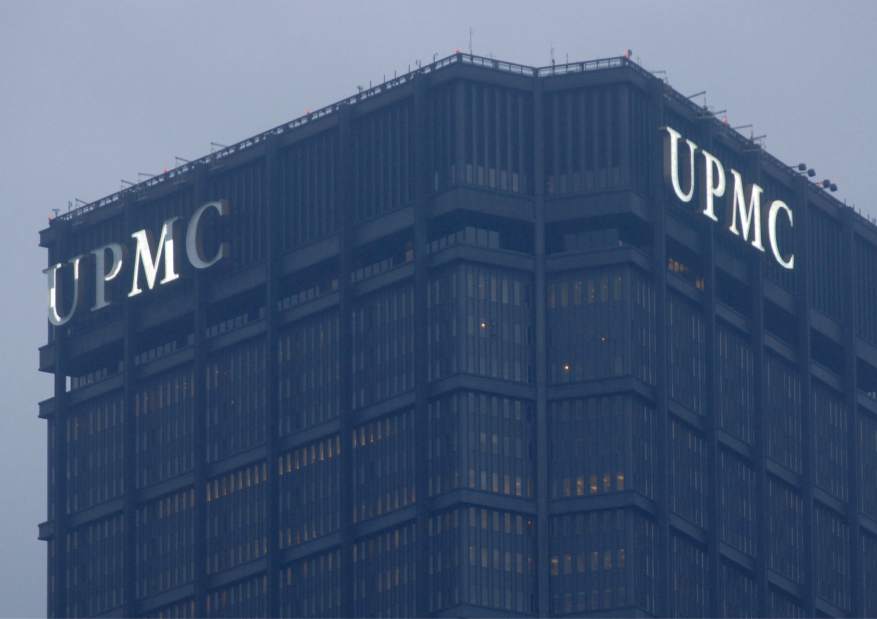Another UPMC mold death spurs new lawsuit
Another lawsuit against UPMC surrounding the fatal mold crisis was filed Tuesday in connection with the October death of an Upper St. Clair man.
Lawyers for the family of John R. Haines, 65, also are suing the health system's linen supplier, Paris Healthcare Linen Services of DuBois.
The newest lawsuit targets a new hospital, UPMC Shadyside, with allegations of negligence, medical malpractice and wrongful death. The previous incidents in which organ transplant patients suffered fungal infections were contained to UPMC Presbyterian and Montefiore hospitals.
On Oct. 5, after several weeks of chemotherapy treatment, he was diagnosed with a rhizopus fungal infection, his lawyers said. He died Oct. 7. A death certificate lists his causes of death as cardiac arrest, sepsis and rhizopus fungal pneumonia.
Haines is the sixth person believed to have died after contracting a fungal infection inside a UPMC facility.
However, the lawsuit pointed out that there is an additional case of an unnamed patient who died at UPMC Shadyside in 2015 after contracting a fungal infection.
UPMC officials said Haines was extremely sick when he was admitted to Shadyside. He had tested positive for pseudomonas, an often deadly bacteria, and was diagnosed with leukemia. His immune system was not functioning, UPMC said in an emailed response Tuesday.
"It is critically important to understand that rhizopus is present in all environments and does not cause illness in anyone except for those with the most severely compromised immune systems," the UPMC statement said. " Despite our best protocols, it can still be carried into the hospital on the shoes or clothes of visitors."
UPMC explained to his family that Haines, an avid gardener, might have contracted the fungal infection prior to his hospitalization, the statement said.
"We decided, however, to classify it as hospital-acquired per CDC (Centers for Disease Control and Prevention) guidelines even though clinically there can be no certainty," officials said. "We have tested hospital linens at UPMC Shadyside and found no rhizopus."
At the time of his initial admission, Haines did not have any kind of fungal infection, according to Pittsburgh attorneys Brendan Lupetin and Jerry Meyers.
"Fungus is everywhere, that's true," Meyers said. "But I'll tell you one place it shouldn't be. It shouldn't be in operating rooms. It shouldn't be in ICUs. It's everywhere which is why there's a diligent effort in hospitals all over the United States who do work on immune-compromised people to protect them."
Paris CEO Dave Stern issued a statement saying the company consistently meets or exceeds accreditation standards and regulatory guidelines for laundering linens.
"We continue to cooperate with all regulatory agencies involved in the oversight of linen processing," he said. "The Centers for Disease Control and Prevention and the Pennsylvania Department of Health both reviewed the facts in this case. Neither agency identified linens as the source of the problem."
Haines was diagnosed with acute leukemia and bacterial pneumonia when he was transferred from St. Clair Hospital in Mt. Lebanon to UPMC Shadyside in September, the lawsuit states.
"At all times relevant hereto, Defendant UPMC and Defendant Paris knew or should have known that fungi like rhizopus, thrive, proliferate and reproduce best in moist/damp environments," the lawsuit stated.
On the day of his death, his family received a letter from UPMC patient safety officer Lisa Donahue.
The letter said, "During your stay, you developed an infection in addition to the infection you presented with to UPMC Shadyside. This was identified by positive culture results and/or symptoms you may have experienced."
The case filed in Allegheny County Court of Common Pleas marks the fifth known lawsuit connected to mold deaths in organ transplant patients that surfaced in September 2015. Two lawsuits have been settled for $1.35 million apiece.
An internal UPMC report that surfaced last month indicated heavy mold growth was found in linens delivered to UPMC Montefiore.
UPMC hired Andrew Streifel, a hospital environment specialist with the University of Minnesota's department of environmental health and safety, to investigate Paris Healthcare Linen Services.
As part of the investigation, Streifel inspected a linen cart delivered by Paris to UPMC Montefiore on Feb. 2, 2016. Samples showed "heavy fungal growth" of rhizopus on the "wet sheets collected from the UPMC laundry carts," he wrote in the report. He also found rhizopus mold at the Paris facility and on its roof.
In a Jan. 27 interview with the Tribune-Review, Streifel said he believes laundry was the source of fungal infections that killed transplant patients.
"The test was very conclusive for fungus," he said at the time. "It was also conclusive that something was wrong with that laundry."
Streifel's report, which the medical center received in May 2016, was filed last month in two wrongful-death lawsuits brought against the hospital system by the families of the deceased. Those lawsuits, filed on behalf of families of Che DuVall, 70, of Perryopolis, and Daniel Krieg, 56, of St. Marys, also added Paris as a new defendant.
Paris has denied any wrongdoing.
Despite the new report regarding Paris, the Centers for Disease Control and Prevention, has said it's not taking any further action. Neither is the Pennsylvania Department of Health.
"Why you hire someone to investigate and then disregard what they say, I don't understand," Meyers said of UPMC and Streifel. "Their investigator told them, 'It's the linen.'"
Lupetin said it's imperative that the CDC comes back and investigates further.
"Here is another case," he said Haines. "Here is another type of immune-suppressed patient that needlessly developed this very, very, very rare type of fungal infection. And we expect there will be more in the future. So let's get to the bottom of this. Let's get the CDC back. Let's get a definite and answer to make sure that this doesn't continue to happen to more patients."
Ben Schmitt is a Tribune-Review staff writer. Reach him at 412-320-7991 or bschmitt@tribweb.com.


